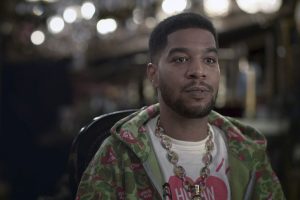Student panel discusses Islamic tolerance in America
November 16, 2010
The proposal for the building of an Islamic Cultural Center near Ground Zero has sparked “Islamophobia” and fierce debate, calling America’s religious tolerance of Muslims into question.
The location of the Mosque and community center is the most controversial aspect of the decision to build the mosque, rather than the religious group behind the mosque itself. The location of the proposed Islamic Cultural Center is 45 Park Place—two blacks away from Ground Zero.
A New York Times Poll of New York City residents cited in a Sept. 2, 2010 editorial cited that 72% of New Yorkers agreed that people have every right to build a “house of worship” near the Ground Zero site. The percentage dropped to 62%, however, when “house of worship” replaced by “mosque and Islamic community center.”
67% of those polled did not take issue with the building of the mosque, but believed the mosque planners should find a less controversial location.
In accordance with The Week of the Peacemaker, Iona students participated in a panel discussion addressing the Ground Zero Mosque Controversy and Islamic Tolerance in America.
Moderated by Associate Professor of Religious Studies Elena Procario-Foley and Director of the Counseling Center Ingrid Grieger, the panel consisted of six Iona Students: Kelley Tucker, Fawaz Abdulkarim, Aaron Megibow, Jesse Ouellette, Carmine Torchetti, and Maggie Rosenfeld.
Each student came from a different religious background and harbored various opinions on the mosque controversy and the state of religious tolerance—especially for Muslims—in America. The students expressed their ideas on issues ranging from the perception of Islam in the US to how Iona students can resolve any anti-Islam sentiment in the community.
“The view of Islam in America is not an aggressive one, contrary to the media’s portrayal. Radicals don’t follow the Koran itself. Their actions are extreme and do not reflect the true beliefs of Islam,” Democracy Matters President Jesse Ouellette said.
Fawaz Abdulkarim, a Muslim student, discussed how people interacted with him after the terrorist attacks on Sept. 11, 2001.
“The view of Muslims in American was unbearable. I lost so many friends because their parents didn’t trust Muslims,” Abdulkarim said. “Parents did not want their son or daughter associating with someone who is linked to an anti-American religious group. People need to understand that every religious group has radical members and that a majority of the religion—especially Islam—does not condone radical tendencies.”
Campus Minister Kelley Tucker expressed that a great deal of anti-Muslim sentiment stems from the lack of education and knowledge on the Muslim faith. “People don’t really have the knowledge of or understand the beliefs of Islam. It is ignorance that causes intolerance, but ignorance is still not an excuse for non-acceptance,” she said.
The panel addressed the fact that the escalated media attention and the potential location of the mosque are the two main factors in the heated controversy over the construction of the mosque. “The location is a big factor in the issue because so many people lost loved ones on 9/11, so it’s a very sensitive issue. It is very important to see where each individual is coming from regardless of their opinion on the matter,” Tucker said.
President of the Gay Straight Alliance Aaron Megibow expressed that although the location is controversial, it is important to remember that the Islamic cultural center will not be limited to solely Muslims.
“The mosque will be a cultural center for the entire community to utilize. It is going to be more of a YMCA than a mosque,” Megibow said. The mosque itself has been compared to the Jewish Community Center located on the west side which is open to New Yorkers of all faiths.
Still, Ground Zero is a very sensitive subject for many Americans due to the devastation and loss the nation sustained on 9/11.
“Ground Zero is in essence a cemetery. It is a place where Americans came together to grieve the loss of their fellow citizens. It is ‘holy ground’ and deserves the utmost respect and reverence in memoriam of those we lost,” junior Carmine Torchetti said.
So what can Iona students do to become involved in the issue? Education is vital. “Students need to educate themselves about the issue and about Islam itself. Maybe hold more panel discussions to hear opinions on the issue at hand,” Torchetti said.
“Students must take the position of promoting peace and full equality for all. Everyone has an individual responsibility and right to voice their opinion and enact change,” Tucker said.
“Differentiation between radical Muslims is extremely important. It is important to eliminate inaccurate stereotypes of Muslims at all costs and learn about the faith in order to properly assess the issue at hand,” Ouellette said.
Students have the power to break free from ignorance and to learn about the issues plaguing Muslims in the US especially in regard to religious tolerance. It is time to move away from of religious intolerance based on inaccurate stereotypes and towards religious peace and equality.







